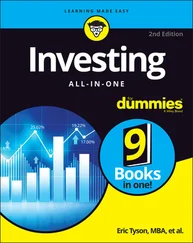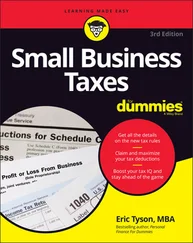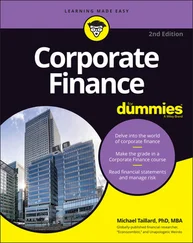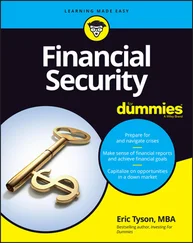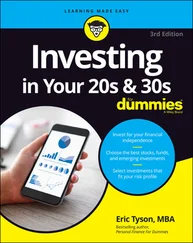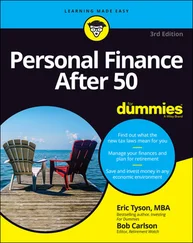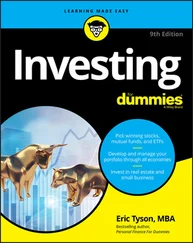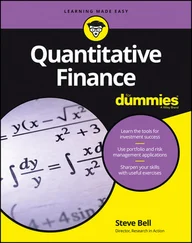 Borrowing and taking on debt for consumption — such as for buying a new car, new furniture, or electronics or for a costly vacation trip — is a bad financial move because such borrowing encourages living beyond your means. And the interest on this so-called consumer debt is generally not tax-deductible and carries a higher rate than the interest on mortgage debt. (Check out the section “ Paying Off Consumer Debt” later in this chapter for tips on how to eliminate such costly loans.)
Borrowing and taking on debt for consumption — such as for buying a new car, new furniture, or electronics or for a costly vacation trip — is a bad financial move because such borrowing encourages living beyond your means. And the interest on this so-called consumer debt is generally not tax-deductible and carries a higher rate than the interest on mortgage debt. (Check out the section “ Paying Off Consumer Debt” later in this chapter for tips on how to eliminate such costly loans.)
Dealing With Student-Loan Debt
Higher education can cost big bucks. And as you read this book, you may not be done with this too-often-costly process. Whether it’s finishing a degree or returning to school for some continuing education, you may have education expenditures, perhaps significant ones, in your future.
And, whether all those education costs are behind you now or not, paying off student loans is probably in your future if you’re like most young adults. So, this section will help you to pay off those loans in a manner that best fits with your overall financial situation and that minimizes costs.
Tracking your student loans and making timely payments
You may have multiple types of loans with different loan servicers. It’s your responsibility to keep track of them, provide changes of address as necessary, and pay them on time. All your federal student loans can be found through the U.S. Department of Education’s Federal Student Aid website ( studentaid.gov/ ).
 Signing up for automatic electronic payments can knock ¼ percent or more off of the interest rate on your student loans. And, autopayment on your loans will keep you current on those loans, benefit your credit score, and eliminate the chance of getting hit with late fees.
Signing up for automatic electronic payments can knock ¼ percent or more off of the interest rate on your student loans. And, autopayment on your loans will keep you current on those loans, benefit your credit score, and eliminate the chance of getting hit with late fees.
If you fall on hard times (for example, you get laid off from your job) and can’t make a payment, communicate with your loan servicer and request a deferment. While your deferment request may be turned down if your circumstances are deemed not severe enough, you may qualify for forbearance, during which interest continues accumulating on your loans but you stop making payments for up to one year. The pandemic of 2020 caused government student loans to be paused, collections stopped, and interest waived until October 1, 2021. If you fail to get in touch and communicate with your loan servicer when you’re having problems making payments, your credit report will show that you are deliquent on your loans and your credit score will suffer greatly (see Chapters 1and 4for more about credit scores).
Prioritizing the payback of student loans
How fast you pay back student loans should be a function of a number of factors. First, if you plan on doing more higher education and possibly applying for any type of financial aid, it generally makes sense to pay the minimum possible on your loans; the more debt you have outstanding, the better positioned you will be to see your future education bills reduced. You can see your repayment options on the website at studentaid.gov/loan-simulator/ .
You should be aware of another quirky feature of federal student loans if you’re contemplating working for certain nonprofit or public-sector employers. The Public Service Loan Forgiveness Program may help wipe out your remaining federal student debt after you’ve made ten years of repayments if you work for a qualifying employer such as the federal, state, or local government or a nonprofit organization covered under Section 501(c)(3) of the Internal Revenue Code, or if you’re serving in a full-time AmeriCorps or Peace Corps position. See studentaid.gov/manage-loans/forgiveness-cancellation/public-service for more information.
When weighing which student loans to pay back faster, you should consider the interest rate on your loans. If you have extra cash and would like to pay back your loans faster, start with the ones with the highest interest rate. If the overall interest rates on your student loans are relatively low, don’t miss out on the tax benefits you can earn by funding a retirement savings account, especially if that retirement account offers you free matching money from your employer.
 If you’re sure you are finished with your higher education and associated costs and are debating paying down your student loans faster than required versus investing your extra cash, do a comparison of the interest cost on your most costly loans versus the likely investment returns if you were to invest that money. (The rules governing the tax-deductible amount of your student-loan interest are covered in the next section.) If, for example, your student loan interest is 4 percent and you are reasonably confident that you can earn, say, 6 to 8 percent by investing your extra cash, you may want to go for the investment.
If you’re sure you are finished with your higher education and associated costs and are debating paying down your student loans faster than required versus investing your extra cash, do a comparison of the interest cost on your most costly loans versus the likely investment returns if you were to invest that money. (The rules governing the tax-deductible amount of your student-loan interest are covered in the next section.) If, for example, your student loan interest is 4 percent and you are reasonably confident that you can earn, say, 6 to 8 percent by investing your extra cash, you may want to go for the investment.
Using education tax breaks
Whether you are finished with your higher education or not, be sure you understand and maximize your use of the U.S. federal government tax benefits relating to those costs. Here’s a summary of key provisions you should know about:
Student-loan interest deduction: You may take up to a $2,500 federal income-tax deduction for student-loan interest that you pay on IRS Form 1040 for college costs as long as your modified adjusted gross income (AGI) is less than or equal to $70,000 for single taxpayers or $140,000 for married couples filing jointly. ( Note: Your deduction is phased out if your AGI is between $70,000 and $85,000 for single taxpayers or between $140,000 and $170,000 for married couples filing jointly.) Loans must be for qualified education expenses at an eligible higher-education institution such as a college, university, vocational or technical school, or other post-secondary educational institution eligible to participate in student-aid programs overseen by the U.S. Department of Education. The student must have taken out the loan during a period when they were enrolled at least half-time in a degree program.
Tax-free investment earnings in special accounts: Money invested in so-called section 529 plans is sheltered from taxation and is not taxed upon withdrawal as long as the money is used to pay for eligible education expenses. Subject to eligibility requirements, 529 plans allow you to sock away $250,000+. Please be aware, however, that funding such accounts may harm your potential financial aid.
Tax credits: The American Opportunity (AO) credit and Lifetime Learning (LL) credit provide tax relief to low- and moderate-income earners facing education costs. The AO credit may be up to $2,500 per student per year of undergraduate education, while the LL credit may be up to $2,000 per taxpayer. Each student may take only one of these credits per tax year, and they are subject to income limitations. And in a year in which a credit is taken, you may not withdraw money from a 529 plan or take a tax deduction for your college expenses.
A number of so-called miscellaneous education and career-related expenses are deductible on IRS Form 1040 Schedule A. These include
Educational expenses: You may be able to deduct the cost of tuition, books, and travel to and from classes if your education is related to your career. Specifically, you can deduct these expenses if your course work improves your work skills. Courses required by law or your employer to maintain your position are deductible if you pay for them. Continuing education classes for professionals may also be tax deductible. Note: Educational expenses that lead to your moving into a new field or career aren’t deductible.
Читать дальше
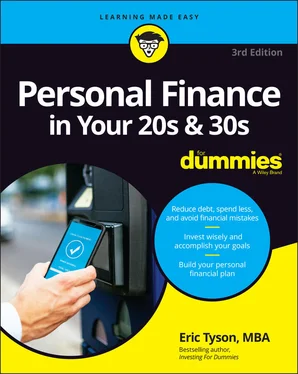
 Borrowing and taking on debt for consumption — such as for buying a new car, new furniture, or electronics or for a costly vacation trip — is a bad financial move because such borrowing encourages living beyond your means. And the interest on this so-called consumer debt is generally not tax-deductible and carries a higher rate than the interest on mortgage debt. (Check out the section “ Paying Off Consumer Debt” later in this chapter for tips on how to eliminate such costly loans.)
Borrowing and taking on debt for consumption — such as for buying a new car, new furniture, or electronics or for a costly vacation trip — is a bad financial move because such borrowing encourages living beyond your means. And the interest on this so-called consumer debt is generally not tax-deductible and carries a higher rate than the interest on mortgage debt. (Check out the section “ Paying Off Consumer Debt” later in this chapter for tips on how to eliminate such costly loans.) Signing up for automatic electronic payments can knock ¼ percent or more off of the interest rate on your student loans. And, autopayment on your loans will keep you current on those loans, benefit your credit score, and eliminate the chance of getting hit with late fees.
Signing up for automatic electronic payments can knock ¼ percent or more off of the interest rate on your student loans. And, autopayment on your loans will keep you current on those loans, benefit your credit score, and eliminate the chance of getting hit with late fees.
